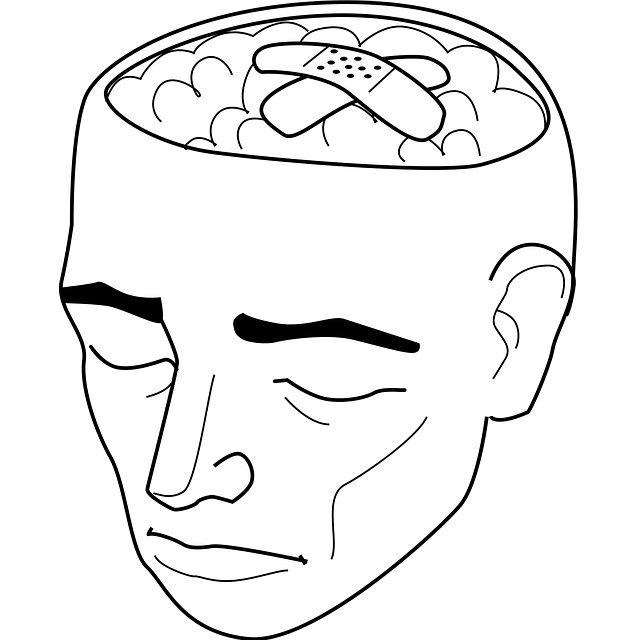Public awareness campaigns about Attention Deficit Disorder/Hyperactivity Disorder (ADD/ADHD) led by centers like Aurora are key to mental health education. These initiatives aim to debunk myths, promote empathy, and empower early identification of distress signs through strategic approaches. Key components include understanding the audience, using personal stories, adhering to evidence-based practices, collaborating with healthcare professionals, leveraging community outreach, and offering coaching programs. Aurora's model combines comprehensive assessment, tailored therapy, and support, fostering well-being and effective coping mechanisms like mindfulness and stress management. Campaign evaluations using diverse methods track outcomes and guide future strategies, ensuring their positive psychological impact on affected individuals.
Public awareness campaigns play a pivotal role in educating communities about health issues, such as Attention Deficit Disorder (ADD) and Attention Deficit Hyperactivity Disorder (ADHD). This article explores the development of impactful campaigns, highlighting their transformative potential. We delve into key components for effective strategies, including unique approaches like Aurora ADD-ADHD Evaluations and Therapy. By examining evaluation methods, we emphasize the importance of measuring success in public health initiatives, ensuring resources are directed towards evidence-based solutions.
- Understanding Public Awareness Campaigns: Their Role and Impact
- Key Components in Designing Effective Campaign Strategies
- Incorporating Aurora ADD-ADHD Evaluations and Therapy: A Unique Approach
- Measuring Success: Evaluation Methods for Public Health Initiatives
Understanding Public Awareness Campaigns: Their Role and Impact

Public awareness campaigns play a pivotal role in educating communities about various issues, with a significant focus on mental health. In the context of Aurora ADD-ADHD evaluations and therapy, these initiatives aim to dispel myths and provide valuable insights into Attention Deficit Disorder/Hyperactivity Disorder (ADD/ADHD). By shedding light on the unique challenges faced by individuals with ADD/ADHD, such campaigns foster empathy and understanding, leading to better support systems.
They also emphasize the broader concept of emotional regulation and burnout prevention, which are crucial aspects of mental wellness. Through engaging narratives, personal stories, and accessible information, these campaigns empower people to recognize signs of distress early on. This proactive approach can significantly impact society’s overall mental health, ensuring that individuals receive the necessary evaluation, therapy, and support to lead fulfilling lives.
Key Components in Designing Effective Campaign Strategies

Designing effective public awareness campaigns for mental health issues, such as ADD/ADHD, requires a strategic approach that includes several key components. Firstly, understanding the target audience is crucial. This involves recognizing the demographics and specific needs of individuals affected by ADD/ADHD, and tailoring messages accordingly. Incorporating personal stories and testimonials from those who have successfully navigated these challenges can resonate deeply with the intended audience, fostering a sense of hope and empowerment.
Additionally, aligning campaign goals with evidence-based practices ensures the dissemination of accurate and helpful information. Collaborating with healthcare professionals, therapists, and support groups like Aurora’s ADD-ADHD Evaluation and Therapy services can provide valuable insights into effective interventions. Leveraging Community Outreach Program Implementation strategies and Emotional Well-being Promotion Techniques can help reach a wider audience, while Mental Wellness Coaching Programs Development can offer practical tools for self-management and coping mechanisms.
Incorporating Aurora ADD-ADHD Evaluations and Therapy: A Unique Approach

Incorporating Aurora ADD-ADHD Evaluations and Therapy into public awareness campaigns offers a unique and innovative approach to addressing attention-deficit/hyperactivity disorder (ADHD). This holistic strategy recognizes that understanding and managing ADHD involves not just medical intervention but also fostering community support and individual coping mechanisms. By integrating these evaluations and therapy sessions, communities can empower individuals with ADHD to navigate daily challenges effectively.
The Aurora model focuses on comprehensive assessment, tailored therapy, and ongoing support, which are crucial components of a successful Community Outreach Program Implementation. Mindfulness meditation and stress management techniques play a significant role in this process, enabling participants to develop resilience and improve their overall well-being. Through these means, public awareness campaigns can move beyond mere information dissemination and contribute meaningfully to the lives of those affected by ADHD.
Measuring Success: Evaluation Methods for Public Health Initiatives

Evaluating the success of public health initiatives is paramount to understanding their impact and guiding future strategies. In the context of mental health awareness campaigns, such as those focused on Aurora ADD-ADHD evaluations and therapy, multiple evaluation methods can be employed to measure both short-term and long-term outcomes. These include surveys, interviews, and observational studies designed to assess changes in knowledge, attitudes, and behaviors among the targeted population.
Cultural sensitivity in mental healthcare practice plays a crucial role in these evaluations, ensuring that assessment tools are accessible and relevant to diverse communities. Mental health education programs design should be inclusive, addressing cultural nuances and barriers to care. Moreover, tracking self-esteem improvement can serve as a significant indicator of successful awareness campaigns, highlighting the positive psychological impacts on individuals affected by conditions like ADD-ADHD.
Public awareness campaigns play a pivotal role in shaping societal understanding and behavior, especially regarding health initiatives. By combining traditional strategies with innovative approaches like the Aurora ADD-ADHD Evaluations and Therapy, we can create impactful programs. This comprehensive guide highlights the key elements for success, emphasizing the importance of tailored, evidence-based methods. Incorporating such unique techniques not only enhances public health outcomes but also ensures campaigns resonate deeply with audiences, leading to lasting positive changes. Remember, effective awareness is the first step towards a healthier, more informed community, and the Aurora approach could be just what’s needed to make a true difference.














